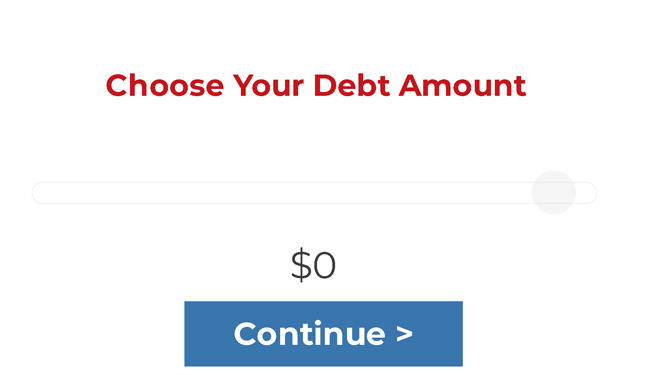Sagemore Financial is a debt consolidation company that offers services to help individuals manage their debt. Debt consolidation involves combining multiple debts into one single loan with a lower interest rate, allowing for easier repayment. Sagemore Financial specializes in helping people with high levels of unsecured debt, such as credit card debt or medical bills. They work with lenders to negotiate lower interest rates and monthly payments, creating a manageable repayment plan for their clients.

Sagemore Financial Services
Sagemore Financial is a company that specializes in providing debt consolidation services to individuals who are struggling with multiple debts. Their services include debt counseling, debt management plans, debt settlement, and debt consolidation loans. They work with creditors to negotiate lower interest rates and monthly payments for their clients, helping them to manage their debts more effectively. Sagemore Financial also offers financial education and support to help their clients stay on top of their finances and avoid future debt problems. Overall, their goal is to help individuals achieve financial stability and freedom by consolidating their debts into one manageable payment.
Sagemore Financial Pros & Cons

Sagemore Financial is a debt consolidation company that offers services to help individuals manage their debts more effectively.
Pros
There are several advantages to working with Sagemore Financial:
- The ability to simplify your debt payments by consolidating all of your debts into one monthly payment. This can be especially helpful for individuals who have multiple credit cards or loans with high interest rates.
- Additionally, Sagemore Financial may be able to negotiate with creditors on your behalf to lower interest rates and reduce the overall amount of debt you owe.
Cons
However, there are also some potential drawbacks to working with a debt consolidation company like Sagemore Financial:
- For example, you may end up paying more in interest over the long-term, and there may be fees associated with using their services.
- Additionally, consolidating your debts may negatively impact your credit score in the short-term, which could make it more difficult to obtain credit in the future.
Ultimately, it is important to carefully weigh the pros and cons of working with a debt consolidation company like Sagemore Financial before making a decision.
Is Sagemore Financial legit or a scam?
Based on our analysis of various online reviews, it appears that Sagemore Financial is not a scam but a legitimate financial services provider. Customers have praised them for their professionalism, transparency, and expertise in helping clients manage their finances. However, like any company, there are also negative reviews and complaints about their services. It is important to do your own research and due diligence before trusting any financial services provider, but overall, Sagemore Financial seems to be a reputable and trustworthy option.
FAQs

What is Sagemore Financial and what services do they offer?
Sagemore Financial is a debt consolidation company that provides debt relief solutions to individuals struggling with debt. They offer debt consolidation loans, debt settlement, and debt management plans.
Is Sagemore Financial a legitimate company?
Yes, Sagemore Financial is a legitimate company. They are registered with the Better Business Bureau (BBB) and have an A+ rating.
How does Sagemore Financial’s debt consolidation loan work?
Sagemore Financial’s debt consolidation loan combines all of your debts into one loan with a single monthly payment. The interest rate on the loan is typically lower than the rates on your individual debts, which can save you money over time.
What is the eligibility criteria for a Sagemore Financial debt consolidation loan?
To be eligible for a debt consolidation loan, you must have a minimum credit score of 600, at least $10,000 in unsecured debt, and be a US citizen or permanent resident.
Can Sagemore Financial’s debt consolidation loan help improve my credit score?
If you make timely payments on your debt consolidation loan, it can help improve your credit score over time. However, if you miss payments or default on the loan, it can have a negative impact on your credit score.
How does Sagemore Financial’s debt settlement program work?
The debt settlement program negotiates with your creditors to settle your debts for less than what you owe. You make monthly payments into a settlement account until there is enough money to negotiate a settlement with your creditors.
What is the success rate of Sagemore Financial’s debt settlement program?
The success rate of the debt settlement program varies depending on the individual’s financial situation. However, they claim to have settled over $250 million in debt for their clients.
Can Sagemore Financial’s debt settlement program help me avoid bankruptcy?
Yes, their debt settlement program can help you avoid bankruptcy by negotiating with your creditors to settle your debts for less than what you owe.
Does Sagemore Financial charge any upfront fees for their services?
No, Sagemore Financial does not charge any upfront fees for their debt consolidation, debt settlement, or debt management services. They only charge a fee once they have successfully negotiated a settlement or helped you obtain a debt consolidation loan.
How can I contact Sagemore Financial if I have questions or concerns?
You can contact their customer service team by phone at 844-724-6763 or by email at [email protected]. They also have a contact form on their website that you can fill out to have a representative contact you.
Glossary
- Sagemore Financial – A debt consolidation company that offers services to help individuals manage their debt.
- Debt consolidation – The process of combining multiple debts into one loan or payment to simplify and potentially lower monthly payments.
- Scam – A fraudulent scheme or deception designed to trick individuals out of their money, often by promising false benefits or services.
- Legit – A legitimate business or service that is genuine and operates within legal and ethical boundaries.
- Interest rate – The percentage of interest charged on a loan or credit card balance.
- Credit score – A numerical value that represents an individual’s creditworthiness and ability to repay debt.
- Debt-to-income ratio – The percentage of an individual’s income that goes towards paying off debt.
- Creditor – A person or entity that lends money to an individual or business.
- Debt settlement – The process of negotiating with creditors to settle a debt for less than the full amount owed.
- Collateral – An asset that is pledged as security for a loan.
- Unsecured debt – Debt that does not require collateral, such as credit card debt.
- Secured debt – Debt that requires collateral, such as a mortgage or car loan.
- Payment plan – A structured plan for repaying debt over time.
- Monthly payment – The amount of money due each month towards a debt or loan.
- Late fees – Penalties charged for missed or late payments.
- Bankruptcy – A legal process for individuals or businesses to discharge or reorganize their debt.
- Consumer Financial Protection Bureau (CFPB) – A government agency that protects consumers in the financial marketplace.
- Debt management – The process of managing and paying off debt through budgeting and financial planning.
- Financial advisor – A professional who provides advice and guidance on financial matters, including debt management.
- Interest savings – The amount of money saved on interest by consolidating debt or paying off debt early.
- Personal loan: A personal loan is a type of loan that is granted to an individual for personal use, such as paying off debt, financing a large purchase, or covering unexpected expenses. It is typically unsecured, meaning that the borrower does not have to put up any collateral to secure the loan. The loan is paid back in fixed installments over a set period of time, with interest added to the principal amount. The interest rate and terms of the loan are based on the borrower’s creditworthiness and financial history.
- Financial assistance: Financial assistance refers to the provision of money or other resources to individuals or organizations in need of financial support. This support may come in the form of loans, grants, scholarships, or other forms of aid. The goal of financial assistance is to alleviate financial stress and help recipients achieve their financial goals.
- Surprise medical expense: A surprise medical expense refers to an unexpected and unplanned cost for medical treatment or services that a person may incur, which they were not prepared or budgeted for.






